How To Lose Lower Belly Fat: 3 Science-Backed Tips
Embrace a stronger you and tone your belly with these insightful fitness tips.

Image: Shutterstock
Lower belly fat is not only a cosmetic issue but also can negatively affect your overall health
. But worry not – as we have brought to you some tips to reduce lower belly fat.
As per an estimate, 60% of the population suffers from belly fat in the US (1). It has become a global health issue. It is also linked to diabetes as visceral fat may cause insulin resistance (2). It is also related to impairing insulin sensitivity in the muscle tissue and the liver (3). All these factors may increase the risk of metabolic disease. Hence, lower belly fat should be addressed immediately without any delay.
While lower belly fat is harmful, it is possible to reduce it. Continue reading to know how to get rid of lower belly fat with the following tips.
You can measure your belly fat at home by using a simple measuring tape. Measure your waist and hip circumference to get the ratio.
According to the WHO, a healthy waist to hip ratio (WHR) is 0.80 or less in women and 0.90 or less in men. A WHR of 1 or more indicates abdominal obesity or belly fat (4).
In This Article
How To Reduce Lower Belly Fat
There are no fast tricks to get rid of lower belly fat. You need to have a holistic approach (exercise, diet, and lifestyle management) to obtain positive and sustainable results.
Disclaimer: The tips shared below may not work for everyone and individual results may vary. They are intended as general information and their effectiveness is dependent on factors such as genetics, your overall health status, lifestyle choices, and how closely you follow these recommendations.
It is important to consult with a qualified healthcare professional or a certified fitness expert before making any significant changes to your diet or exercise routine. This will ensure you are following practices that are best suited to you.
1. Exercise

Exercise is one of the most effective ways to lower belly fat. However, focusing only on ab and core exercises is not going to help out. Spot reduction of the fat around your belly is not possible.
A study on 24 healthy individuals doing abdominal exercise for six weeks showed no significant benefit in reducing abdominal fat (5). Instead, you need to target different muscle groups with aerobic exercises. Several studies have found that aerobic exercises may help strengthen the core and reduce abdominal fat (6).
There are many exercises for reducing belly fat that you can add to your daily workout routine. Try out different forms of exercises – like strength training, cardio, and aerobic exercises – for better results. On your abs days, do the following exercises with some cardio to target your core muscles :
- Leg Raises – 3 sets of 15 reps
- Scissor Kicks – 3 sets of 15 reps
- Leg In And Out – 3 sets of 15 reps
- Standing Alternate Leg Kicks – 3 sets of 15 reps
- Lying Leg Curls – 3 sets of 15 reps
- Mountain Climbers – 3 sets of 15 reps
- Bicycle Crunches – 3 sets of 15 reps
- Russian Twists – 3 sets of 20 reps
- Burpees – 3 sets of 10 reps
- Flutter Kicks – 3 sets of 20 reps
- Superman – 2 sets of 3 reps
 Quick Tip
Quick Tip2. Healthy Diet
- Cut Down On Carbs
By following a belly fat diet plan, you can achieve your dream tummy! Cutting down on carbs is extremely beneficial in reducing excess belly fat. A low-carb diet decreases a few pounds quickly as it releases water from the body. In a study conducted at the Haimoto Clinic (Japan), 63 people (men and women) on a low-carb diet showed a reduction in belly fat, subcutaneous fati The fat beneath the skin and around the organs that lies deep in the abdominal cavity. Also known as visceral fat. , and waist circumference (7).
Limiting carb intake to 100 g/day, consuming more fruit and vegetable whole foods, replacing grains with whole grains, and portion control are important to kick start your weight loss. The dietary fiber in whole grains improves satiety to aid weight loss (8). The bioactive compounds in fruits and vegetables help in various cellular reactions and processes (9).
Richard, a blogger, shared his strategic approach for losing belly fat on his blog: “To start losing weight fast, you will need to be in a caloric deficit. What this means is that you need to eat less food than what your body needs or burn more calories through your activities than what you consume. That is exactly what I personally do (i).”
- Include Protein In Every Meal
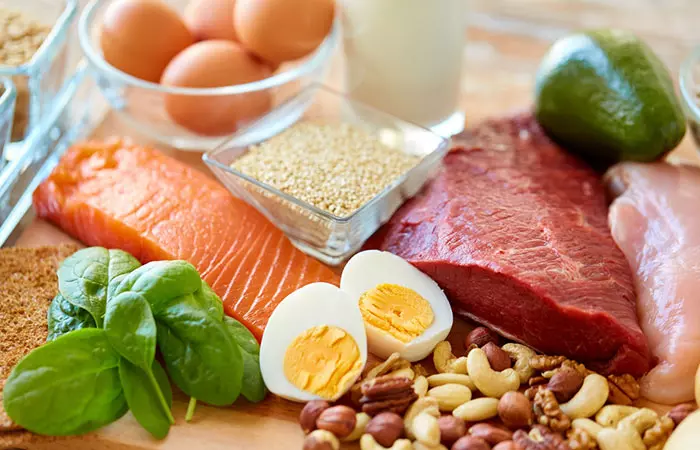
A study carried on 27 overweight/obese men by the University of Missouri found that a high-protein diet improves appetite control and satiety to promote weight loss (10).
Proteins take longer to digest and release PYY, a gut hormone that decreases appetite and promotes satiety (11). They also help build lean muscle mass, a site where a number of mitochondria (cell organelles in which sugar gets converted to usable energy) are present, boosting up metabolism (12).
You should aim for a 25-30% protein intake of total calories. Use coconut oil for grilling or sautéing your protein as a study has shown that medium- and long-chain triacylglyceroli A type of fat that is not immediately required by the body to produce calories for essential tasks and is stored in the cells for later use. (MLCT) suppresses body fat accumulation in humans (13).
Note: Protein intake values may vary based on individual needs and dietary requirements.
 Quick Tip
Quick Tip- Consume Healthy Fats
Healthy fats
are a great way to reduce inflammation in the body. Chronic inflammation is directly linked to obesity. Include polyunsaturated fats like olive oil, avocado, nuts, and seeds, clarified butter, fatty fish rich in omega-3 fatty acids in your diet to lower inflammation (14). Avoiding processed foods can help you cut down on additional unhealthy fats, sugars, salts, and cholesterol.
- Bulk Up On Fiber
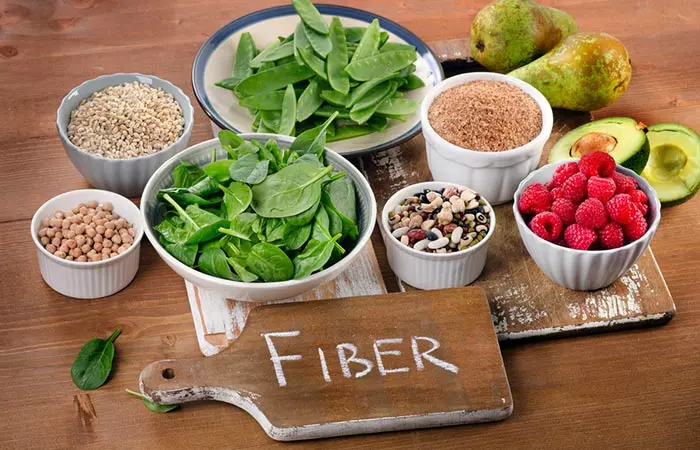
When the soluble fiber found in fruits, vegetables, and whole grains is fermented in the large intestine, it produces two gut hormones – glucagon-like peptidei A hormone secreted by intestinal cells that triggers the release of insulin in the body and decreases hunger and energy intake. (GLP-1) and peptide YYi A hormone produced by the small intestine that helps suppress appetite and regulate food consumption. (PYY). These hormones increase satiety (15). The best ways to incorporate fiber in the diet is being regular with your fruit and vegetable intake, replacing regular grains with whole grains, and adding legumes to your diet.
- Avoid Refined Sugar
If you want to reduce your tummy without any exercise, you need to avoid refined sugar in any form – colas, candies, chocolates, cakes, cookies, etc. Many studies have shown that consumption of sugar-sweetened beverages increases the chances of obesity. A positive correlation was established between the intake of sugary beverages and weight gain/obesity among children and adults (16).
Use jaggery, dark brown sugar, organic honey, and organic maple syrup instead of refined sugar when you crave something sweet.
- Drink Green Tea

Green tea is the perfect detox drink when you are trying to lose belly fat. It contains caffeine and EGCG (epigallocatechini A type of catechin present in green tea that helps lose weight, reduce inflammation and prevent heart and brain illness. gallate), which can have powerful effects on metabolism. It helps nullify the harmful effects of free oxygen radicals, thereby preventing toxin accumulation (17). The effect may be strengthened when green tea consumption is combined with exercise.
Have two to three cups (8 fluid ounces) of green tea per day. You may also try other detox drinks and probiotics for similar benefits.
- Stay Hydrated
Staying hydrated is the key to flushing out toxins. Consume less energy-dense (low-calorie) foods to lose weight. Drinking 500 ml water 30 minutes before a meal can lead to moderate weight loss (18).
A study in The Journal of Clinical Endocrinology and Metabolism states that drinking 500 ml of water increases metabolic rate by 30% because of water-induced thermogenesis. This can be beneficial for weight loss (19).
3. Lifestyle Management
If you are following a great diet but still not losing your belly fat, then your lifestyle could be to blame. Stress, inadequate sleep, and bad lifestyle habits are the major culprits of belly fat.
- Stress Management
Stress and weight gain are interconnected. A study published in Obesity Research states that uncontrollable stress increases the cortisol levels in your body, which causes fat deposition in the abdomen area (20). This increase in cortisol levels can also increase the urge for “comfort foods” like refined carbs, fried foods, and sweets. These foods cause fat deposition, specifically in the abdominal area (21). A few things you can do to reduce stress are:
- Do deep breathing exercises in the early morning and before going to bed.
- Walk outdoors for 15-20 minutes (slow pace work) to get some fresh air.
- Spend some time on a hobby you enjoy. Or try making new hobbies out of mindfulness activities.
- Take some time out from your busy schedule to enjoy with your family and friends.
- Proper Sleep

Sleep helps recharge your body and mind. Sleep deprivation increases inflammation and toxin build-up in the body. A study published in Obesity Journal on obese women showed that sleeping more than 7 hours per night increased the likelihood of weight-loss success (22). Therefore, the quality and quantity of sleep are vital factors in losing belly fat.
- Seek Professional Help
Losing lower belly fat, or even a general weight loss journey by yourself may prove to be challenging. Whether it is figuring out a workout routine, a nutrition plan, or ways to work around mental barriers. Seeking professional advice regarding these aspects can help kickstart the process and maintain a clean lifestyle. A professional can help you understand how to get rid of your lower belly pooch fast in ways that are customized to your body type. However, you will still need to be patient and consistent with your diet and exercise to see results. Additionally, keep a journal for tracking progress and goals. This will help you observe what has been accomplished, what challenges you are facing, as well as how you can make improvements.
Key Takeaways
- Do regular abdominal exercises such as crunches and burpees, to reduce belly fat.
- Choose a diet low in carbs as it releases water from the body, aiding in weight loss.
- Drinking plenty of water may helps flush out toxins that may contribute to belly fat.
- Getting more than 7 hours of sleep every night may increase the chances of quicker weight loss.
Infographic: Top 5 Diet Tips To Reduce Lower Belly Fat
For many people, having a bit of lower belly fat is perfectly normal. However, too much of it can affect your health. While you can easily exercise and incorporate healthy lifestyle changes, such as improving your sleeping pattern, to battle it, your diet is important too. Check out the infographic below for diet tips to reduce your overall weight and lower belly fat.
Some thing wrong with infographic shortcode. please verify shortcode syntax
It is important to lose belly fat as it can impact your insulin resistance and sensitivity. But, you cannot lose belly fat overnight or in a week. Belly, or abdominal, fat is very stubborn and only reduces with a long-term weight loss strategy. This strategy, as mentioned above, should incorporate a daily exercise regimen paired with a balanced and nutritious diet and a healthy lifestyle. You may not notice any weight reduction right at the beginning, but stick to this strategy to see long-term results – consistency, patience, and self-care are key. Along with following the above tips to reduce lower belly fat, you should also take steps to reduce stress. Keep in mind that these tips may not work for everyone, and individual results vary depending on your lifestyle and health needs. It is also advised to consult with a healthcare professional or a certified fitness instructor before starting any new weight loss regimen or fitness program.
Frequently Asked Questions
What should I avoid while trying to lose belly fat?
Avoid excessive consumption of processed foods, sugary drinks, and refined carbohydrates to effectively lose belly fat. Additionally, you should limit alcohol intake and manage stress levels.
Is lower belly fat hard to lose?
Yes, lower belly fat is stubborn and difficult to lose than fat from other areas of the body due to the presence of beta fat cells in the lower belly region.
How can I lose my lower belly fat in 3 days?
You cannot spot reduce fat from the lower belly region. However, you may see a difference in lower belly fat with proper sleep, adequate hydration, protein intake, and high intensity interval training combined with core strengthening exercises. Avoiding sugary or inflammatory foods and drinks and reducing alcohol intake can be effective too.
Do planks burn lower belly fat?
Planks help strengthen the core muscles which in turn help burn more calories, leading to lower belly fat loss.
Do squats burn lower belly fat?
Squats do not help spot reduce belly fat, but it helps build muscles and lose calories, which can lead to a reduction in lower belly fat.
Some thing wrong with illustration image shortcode. please verify shortcode syntaxReady to tackle that stubborn lower belly fat? Check out this video packed with 10 simple yet effective ab exercises that can help you on your journey to a flatter tummy.
Personal Experience: Source
StyleCraze's articles are interwoven with authentic personal narratives that provide depth and resonance to our content. Below are the sources of the personal accounts referenced in this article.
i. How to Lose Belly Fat in 1 Weekhttps://medium.com/@fatlosscommunity/how-to-lose-belly-fat-in-1-week-1cd8a1d9f249
References
Articles on StyleCraze are backed by verified information from peer-reviewed and academic research papers, reputed organizations, research institutions, and medical associations to ensure accuracy and relevance. Read our editorial policy to learn more.
- Indicator Details: Percentage with Abdominal Obesity by Survey Year, Centers for Disease Control and Prevention.
https://nccd.cdc.gov/ckd/Default.aspx - Insulin resistance: definition and consequences, Experimental and Clinical Endocrinology & Diabetes, US National Library of Medicine, National Institutes of Health.
https://pubmed.ncbi.nlm.nih.gov/11460565/ - What causes the insulin resistance underlying obesity?Current Opinion In Endocrinology, Diabetes, and Obesity, US National Library of Medicine, National Institutes of Health.
https://www.ncbi.nlm.nih.gov/pmc/articles/PMC4038351/ - Waist Circumference and Waist-Hip Ratio, Report of a WHO Expert Consultation, World Health Organization.
https://iris.who.int/bitstream/handle/10665/44583/9789241501491_eng.pdf;jsessionid=B75820A2C301B29DA1FE75C7ADDE596B?sequence=1 - The effect of abdominal exercise on abdominal fat, Journal of Strength and Conditioning Research, US National Library of Medicine, National Institutes of Health.
https://pubmed.ncbi.nlm.nih.gov/21804427/ - A systematic review and meta-analysis of the effect of aerobic vs. resistance exercise training on visceral fat, Obesity Reviews, US National Library of Medicine, National Institutes of Health.
https://pubmed.ncbi.nlm.nih.gov/21951360/ - Effects of a moderate low-carbohydrate diet on preferential abdominal fat loss and cardiovascular risk factors in patients with type 2 diabetes, Diabetes, Metabolic Syndrome and Obesity: Targets and Therapy, US National Library of Medicine, National Institutes of Health.
https://www.ncbi.nlm.nih.gov/pmc/articles/PMC3138148/ - Dietary fiber and satiety: the effects of oats on satiety, Nutrition Reviews, US National Library of Medicine, National Institutes of Health.
https://www.ncbi.nlm.nih.gov/pmc/articles/PMC4757923/ - Health-Promoting Components of Fruits and Vegetables in the Diet, Advances in Nutrition, US National Library of Medicine, National Institutes of Health.
https://www.ncbi.nlm.nih.gov/pmc/articles/PMC3650511/ - The effects of consuming frequent, higher protein meals on appetite and satiety during weight loss in overweight/obese men, Obesity, US National Library of Medicine, National Institutes of Health.
https://pubmed.ncbi.nlm.nih.gov/20847729/ - A high-protein diet for reducing body fat: mechanisms and possible caveats, Nutrition & Metabolism, US National Library of Medicine, National Institutes of Health.
https://www.ncbi.nlm.nih.gov/pmc/articles/PMC4258944/ - Chapter 2 – Anatomy of Skeletal Muscle and Its Vascular Supply, Skeletal Muscle Circulation, US National Library of Medicine, National Institutes of Health.
https://www.ncbi.nlm.nih.gov/books/NBK57140/ - The application of medium-chain fatty acids: edible oil with a suppressing effect on body fat accumulation, Asia Pacific Journal of Clinical Nutrition, US National Library of Medicine, National Institutes of Health.
https://pubmed.ncbi.nlm.nih.gov/18296368/ - N-3 Polyunsaturated Fatty Acids and Inflammation in Obesity: Local Effect and Systemic Benefit, BioMed Research International, US National Library of Medicine, National Institutes of Health.
https://www.ncbi.nlm.nih.gov/pmc/articles/PMC4538411/ - Dietary Fibre and Its Effect on Health, International Journal of Research and Analytical Reviews.
https://ijrar.com/upload_issue/ijrar_issue_558.pdf - Intake of sugar-sweetened beverages and weight gain: a systematic review, The American Journal of Clinical Nutrition, US National Library of Medicine, National Institutes of Health.
https://www.ncbi.nlm.nih.gov/pmc/articles/PMC3210834/ - Epigallocatechin Gallate Is the Most Effective Catechin Against Antioxidant Stress via Hydrogen Peroxide and Radical Scavenging Activity, Medical Science Monitor, US National Library of Medicine, National Institutes of Health.
https://www.ncbi.nlm.nih.gov/pmc/articles/PMC6247744/ - Efficacy of water preloading before main meals as a strategy for weight loss in primary care patients with obesity: RCT, Obesity, US National Library of Medicine, National Institutes of Health.
https://pubmed.ncbi.nlm.nih.gov/26237305/ - Water-induced thermogenesis, The Journal of Clinical Endocrinology and Metabolism, US National Library of Medicine, National Institutes of Health.
https://pubmed.ncbi.nlm.nih.gov/14671205/ - Stress-induced cortisol response and fat distribution in women, Obesity Research, US National Library of Medicine, National Institutes of Health.
https://pubmed.ncbi.nlm.nih.gov/16353426/ - Stress and Obesity: Are There More Susceptible Individuals?Current Obesity Reports, US National Library of Medicine, National Institutes of Health.
https://www.ncbi.nlm.nih.gov/pmc/articles/PMC5958156/ - Relationship between sleep quality and quantity and weight loss in women participating in a weight-loss intervention trial, Obesity, US National Library of Medicine, National Institutes of Health.
https://pubmed.ncbi.nlm.nih.gov/22402738/
Read full bio of Merlin Annie Raj
Read full bio of Ravi Teja Tadimalla
Read full bio of Aparna Mallampalli






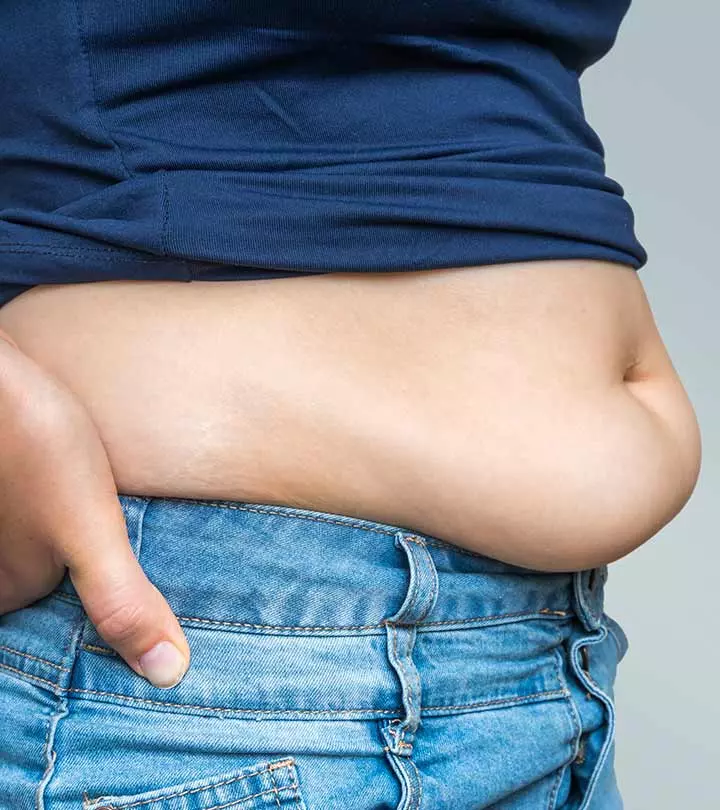
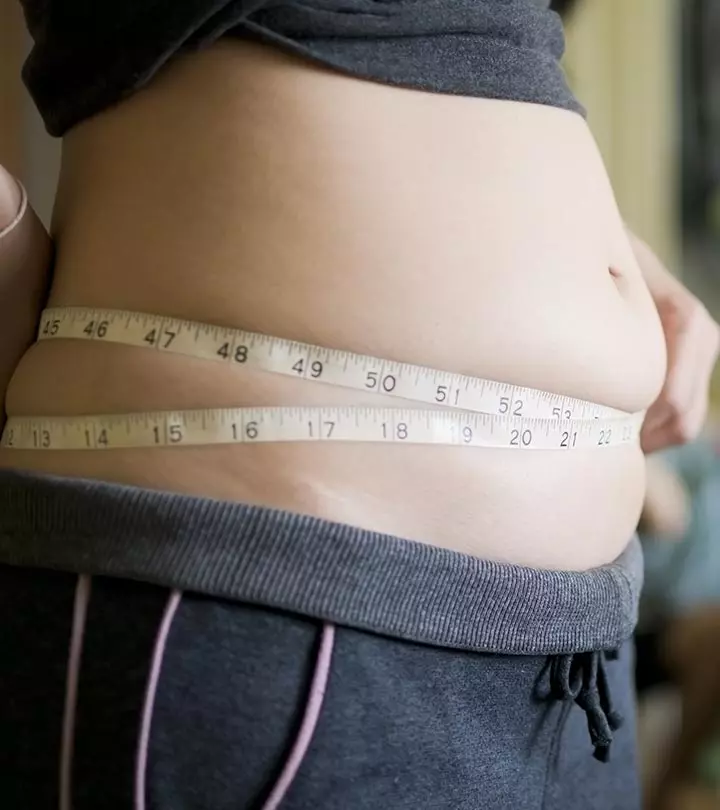

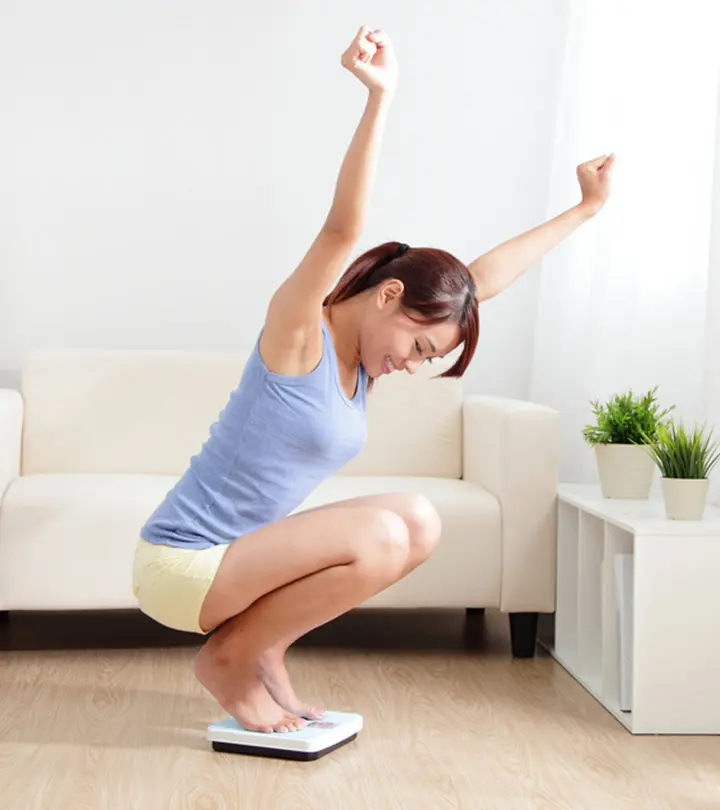

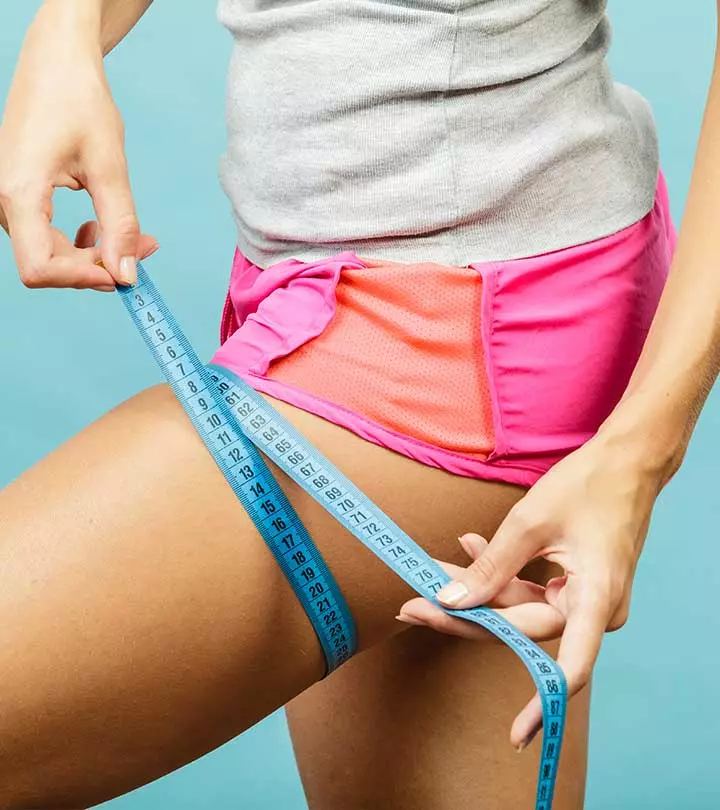


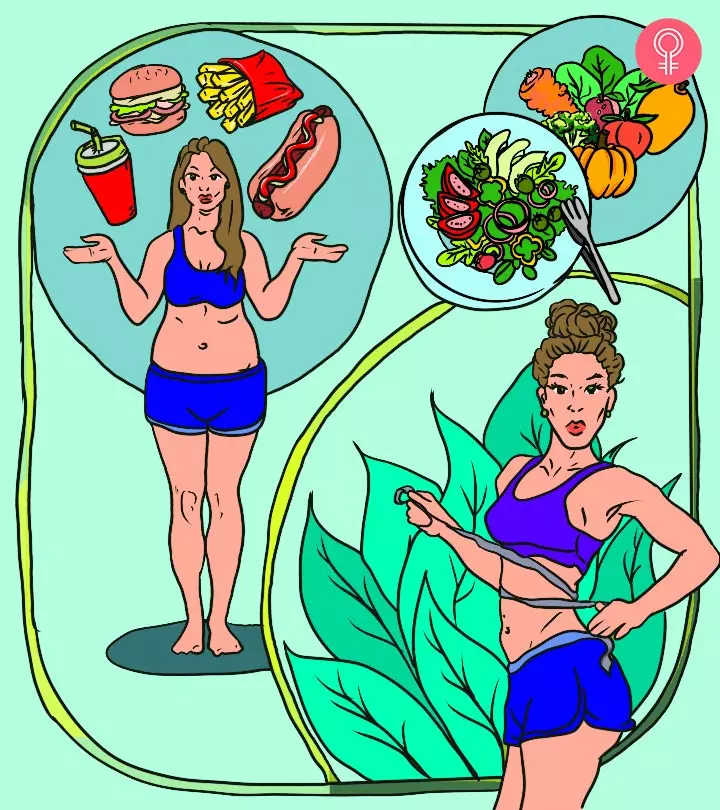

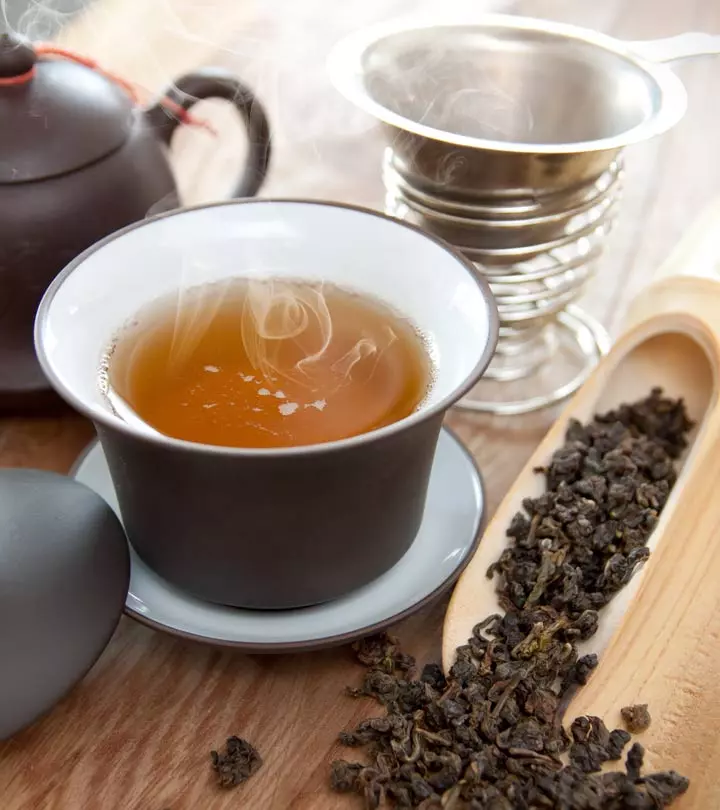
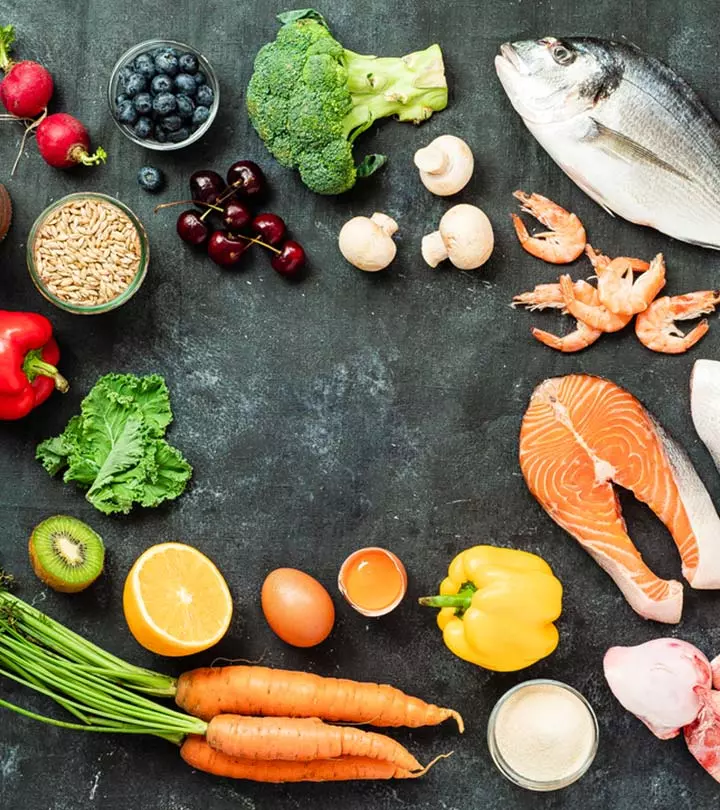

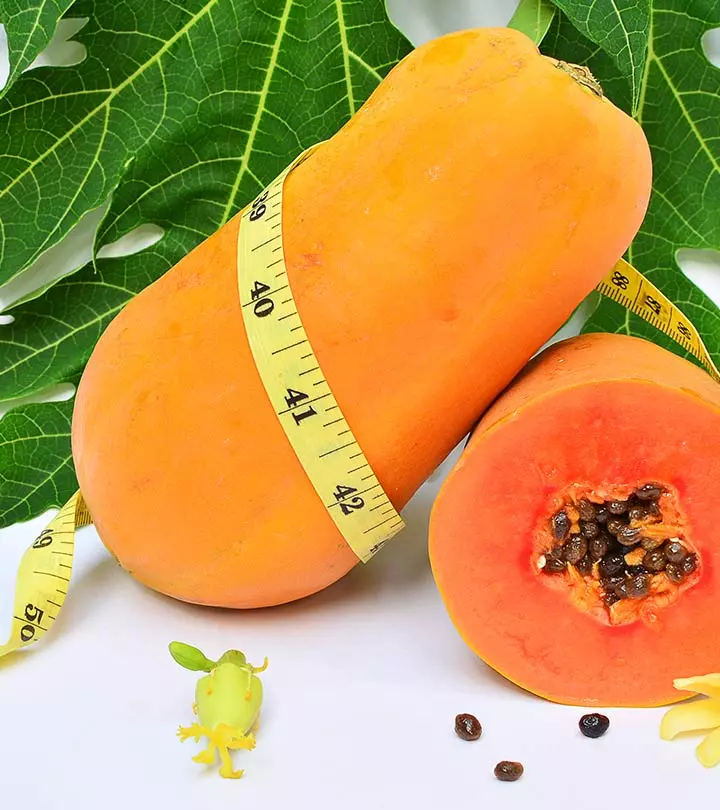
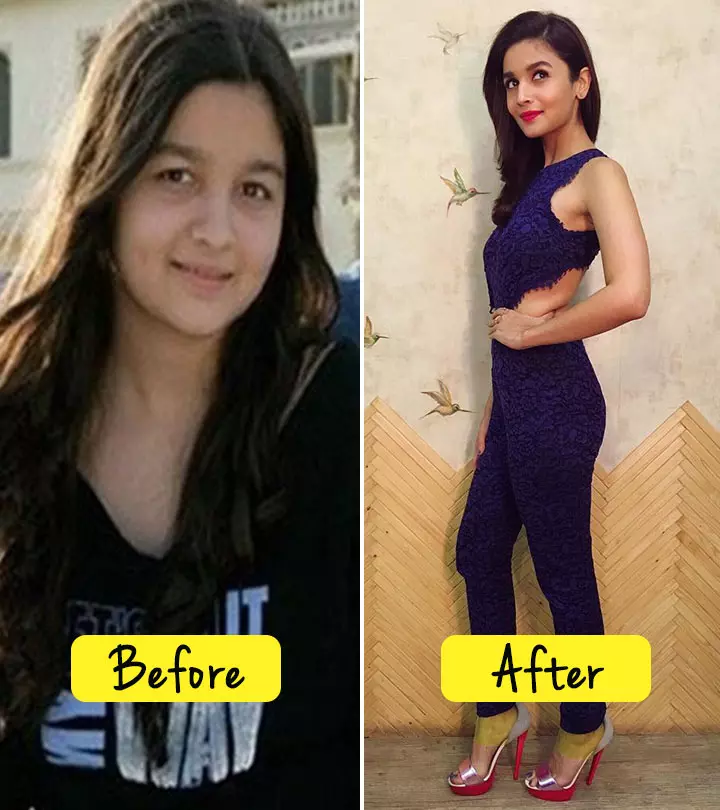

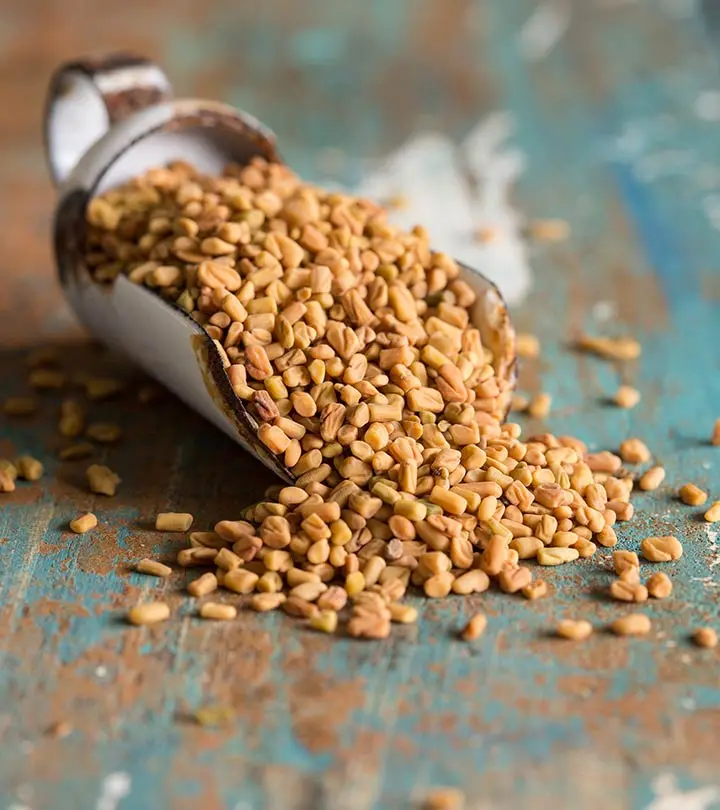
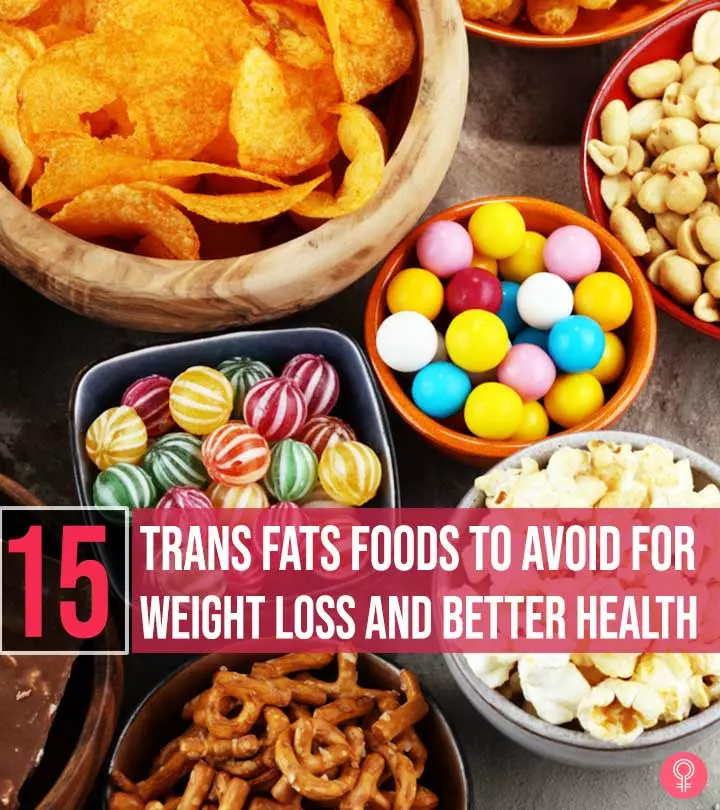



Community Experiences
Join the conversation and become a part of our empowering community! Share your stories, experiences, and insights to connect with other beauty, lifestyle, and health enthusiasts.